Malpractice Vs Negligence – Let’s Find Out The Difference

Malpractice vs Negligence
What is the difference between the two?
Sometimes we tend to mistake one word for the other. Especially during our use in daily life, we use the words negligence and malpractice interchangeably.
Both of the terms suggest that a defendant is usually responsible for the losses of the victims. But the nature of the claim might vary based on whether the plaintiff claims for Malpractice or negligence.
Go through this article to learn more about two of these different claims a plaintiff often makes.
What Does Negligence Mean In the Professional Field?

Before I elaborate on the difference between Malpractice vs. negligence, we should discuss what it means. The term comes from the Latin word “Negligentia,” and means ‘filing to pick up.
We can easily translate the word as ‘lack of care.’ our common belief is that any injury done by someone due to their lack of care should hold them legally responsible for the harm caused. Negligence can cause both criminal and civil wrongs.
An act of carelessness holds the defendant as being irresponsible, unlike any other responsible person. It may not cause any direct harm toward the victims, but negligence does constitute a tort. It is a failure on someone’s part to act like any other responsible person.
Now, all that you read is a general description of what negligence looks like. But professional negligence is a little different from the similar features of any other negligence. There is only specific business-related context added when we are talking about professional negligence.
Professional negligence is marked by the failure of an employee or an extension to uphold the care standards essential for the customers’ safety. Such negligence causes harm to the victims. In business, professional negligence is the failure of a business to provide the service it is hired for.
Read More: The Types Of Serious Injuries A Car Accident Victim Can Sustain
Key Elements Of Negligence
There are different elements of an act of negligence.
Duty Of Care
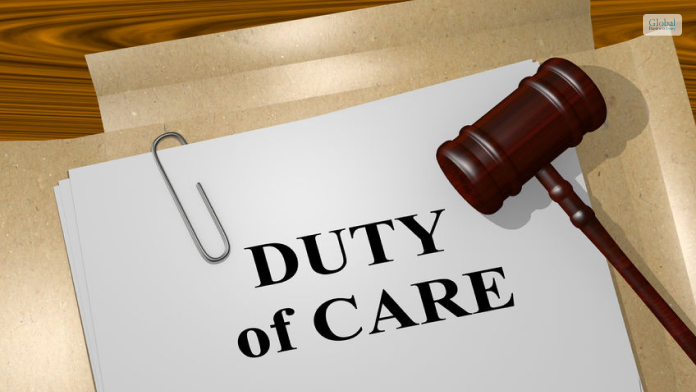
The defendant must have a duty of care towards the plaintiff. These duties are certain ways they should refrain from acting. Failing to uphold this duty of care can significantly harm others or the client.
Breach Of Duty
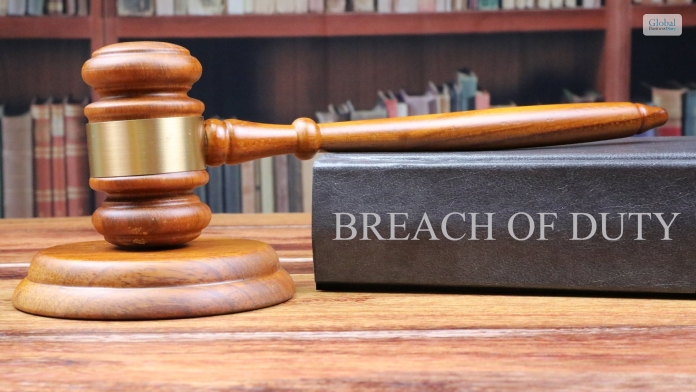
Breach of duty might happen when a professional fails to uphold liabilities that are different from their personal obligations. A breach of contract occurs when a complaint involves a breach of duty because of, the promises on the contract.
Actionability Of Negligence Lawsuit
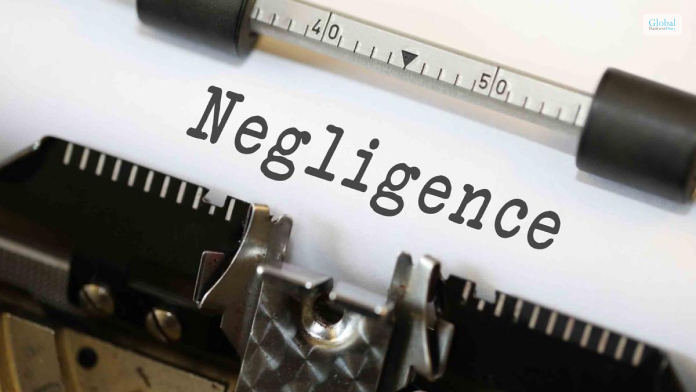
When the plaintiff suffers any damage or harm due to the violation of duty on the defendant’s part, only then a negligence lawsuit becomes actionable. But there must be reasons affirming that the allegations are attributable to the defendant.
What Does Malpractice Mean In the Professional Field?

The word Malpractice is the unison of two different Latin words – “malus” and “practicare,”Both of these words mean to exercise any bad practice.
Malpractice in the professional field suggests the harm caused when any professional breaches their responsibility of care towards their client. In business and the professional field, professionals are under the obligation to uphold widely accepted professional standards and ensure the safety of the users.
Usually, doctors and lawyers are found to Malpractice more frequently than in other fields. Any action (that is against the accepted medical standards) taken or not taken by the doctor during medical practices might be seen as medical Malpractice.
In the legal field, legal Malpractice is done when the lawyer breaches their client’s trust, causing them to suffer. This usually happens when the lawyer mishandles a matter out of negligence or due to any personal or malicious reason.
Key Elements Of Malpractices
When filing a malpractice lawsuit against any defendant, the victim must ensure different key elements of the Malpractice. Here are those elements –
Professional Duty Owed To The Client
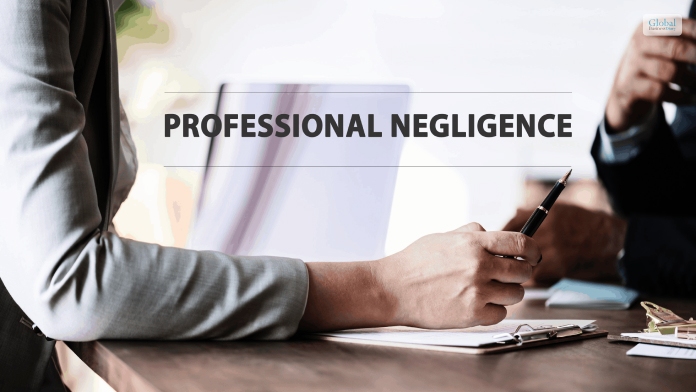
This can be within any sector. Especially in the medical field, doctors have specific legal duties towards their patients. This duty of care arises when a business connection or professional connection gets started between a client and a provider.
Breach Of Duty
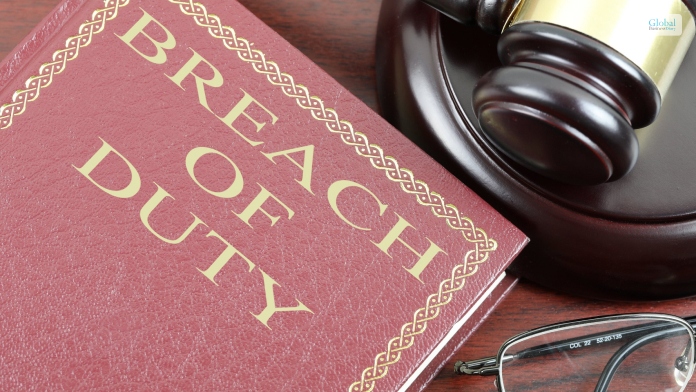
There is a standard of duty that a professional needs to uphold towards their clients in every professional setting. But, it varies from one jurisdiction to another. If a professional is found breaching this standard, it makes them liable for breach of their duty.
Causation

When the breach of duty is filed, the victim must provide direct and valid reasons that negligence and Malpractice on the professional’s part caused the damage.
Damage Of The Breach

For the malpractice claim to work, the victim must go through damage or injury due to negligence on the defendant’s part. If the negligence does not cause any damage, no malpractice claims can be made.
Malpractice Vs Negligence: What’s The Difference?
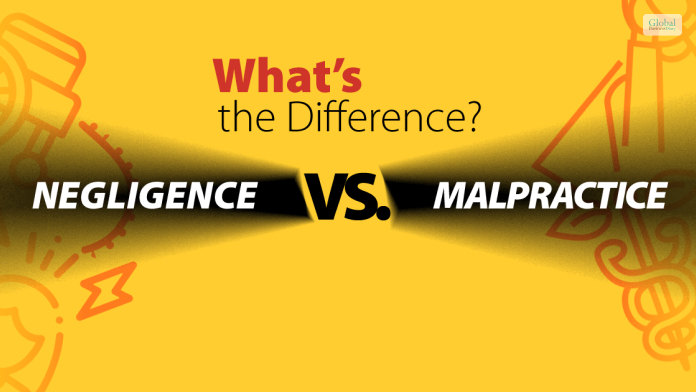
- Negligence occurs on a professional’s part due to being unreasonable and careless in their duty owed to their clients. Such carelessness causes harm and damage to their clients. On the other hand, Malpractice means the breach of duty because of any malicious or personal intent from the professional’s side. Malpractices include damages directly attributable to the client.
- Negligence claims are made against anyone who breached their general duty of care out of carelessness. Malpractice claims can be brought against professionals who have breached their professional responsibility of care.
- Negligence is a wider term that includes Malpractice. Malpractice is a type of negligence and also a narrower term.
- Negligence results from someone’s failure to act or not act in a reasonable way to prevent circumstances that can potentially cause harm. It is also unintentional. On the other hand, Malpractice is intentional negligence and failure to uphold certain professional skills.
Read More: Choosing A Criminal Defense Law Firm
Bottom Line
So, these were the general differences between Malpractice and negligence. Negligence and malpractices are quite common in the professional field and require legal attention. If you notice anything of these sorts, you should seek legal help.
But you must also know whether the damage done is through negligence or Malpractice. Once you go through this article, you will understand the difference between both terms. However, if other queries are also there, please let us know through our comment section below. Please share your feedback as well. Thank you for reading.
Read Also:













